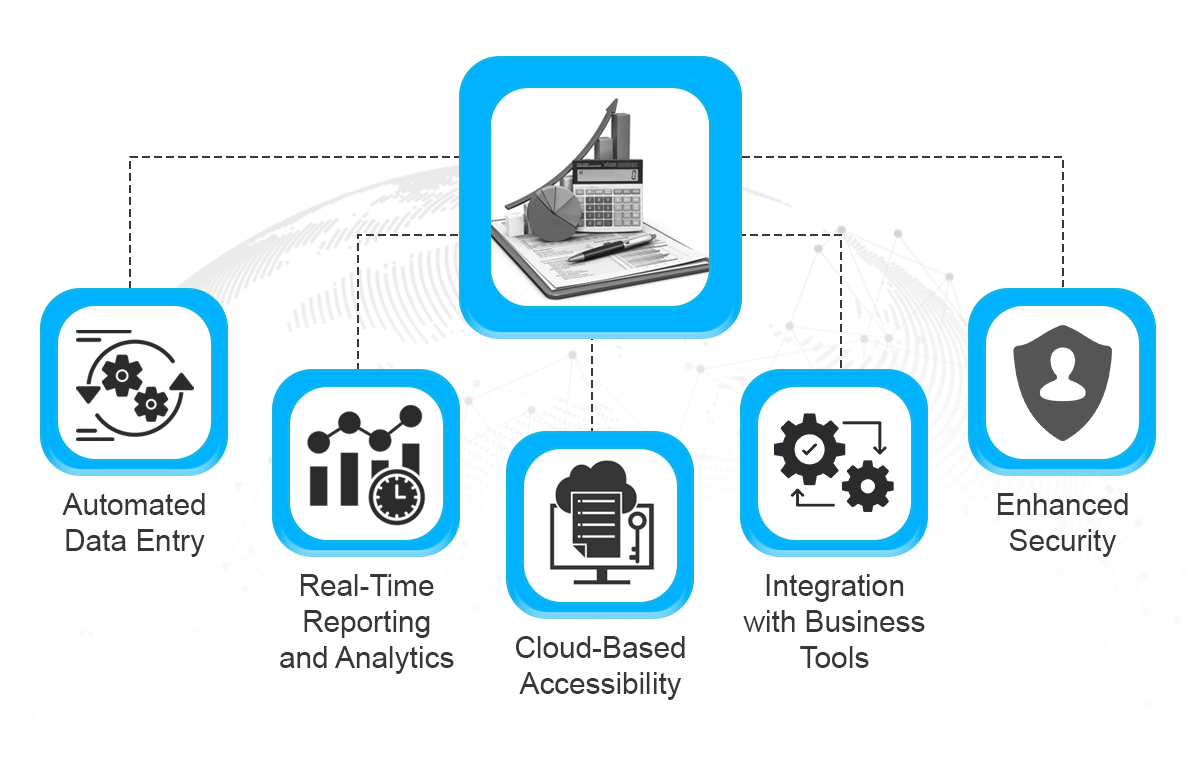SaaS accounting solutions are transforming how businesses handle finances by reducing the chances of such errors. Unlike traditional methods, SaaS tools automate processes like data entry, transaction categorization, and financial reporting, making them faster and more accurate. They operate in real-time, ensuring businesses always have access to the latest data, which helps in timely decision-making. With features like error detection, built-in compliance checks, and easy integration with other tools, SaaS accounting software minimizes mistakes and streamlines overall financial management.
What is SaaS accounting software?
Key Features of SaaS Accounting Software

- Automated Data Entry
- Real-Time Reporting and Analytics
- Cloud-Based Accessibility
- Integration with Business Tools
- Enhanced Security
Common Accounting Errors SaaS Software Resolves
- Data Entry Mistakes
Manual data entry can lead to errors that disrupt financial records. SaaS accounting software eliminates this by auto-syncing bank transactions, invoices, and receipts. This automation ensures accurate entries and saves businesses time.
- Misclassification of Transactions
Misclassifying expenses or income can result in inaccurate reports. SaaS tools use AI and machine learning to categorize transactions intelligently, ensuring they’re recorded in the right accounts. This feature helps businesses effortlessly maintain accurate and compliant records.
- Calculation Errors
Calculating taxes, discounts, or totals can cause errors that impact finances and compliance. With automated calculations, SaaS software ensures precision in financial operations, reducing costly mistakes and improving reliability.
- Missed Deadlines
Failure to pay invoices or file compliance reports on time can result in penalties. SaaS solutions include notifications and reminders for due dates, helping businesses manage their financial responsibilities.
Choosing the Right SaaS Accounting Solution
- Customizable Reporting
- Robust Security Features
- User-Friendly Interface
- Popular SaaS Accounting Tools in the Market
Implementation Tips for SaaS Accounting Software
- Identify Pain Points in Your Current Accounting Process
- Research and Compare SaaS Tools
- Onboard Your Team with Adequate Training
- Regularly Update and Review Software Performance
Conclusion
For companies looking to adopt modern solutions, working with a FinTech app development company or a trusted IT solution provider can ensure a smooth transition. SaaS tools are designed to evolve with your business, offering flexibility and scalability. Implementing such software strengthens financial accuracy and positions your business for long-term success in a competitive market.


.webp?lang=en-US&ext=.webp)

.webp?lang=en-US&ext=.webp)

